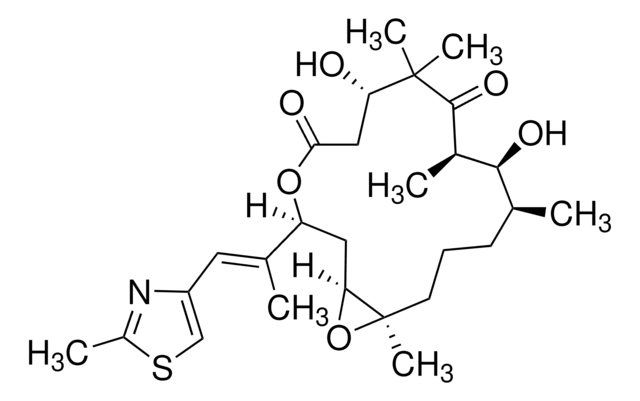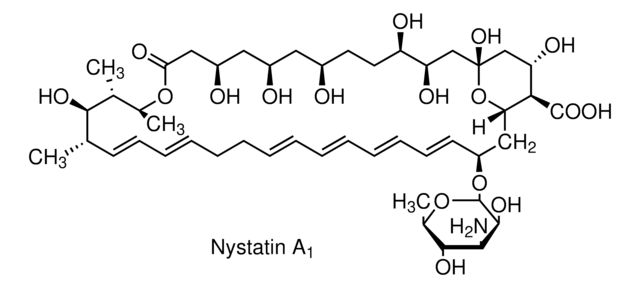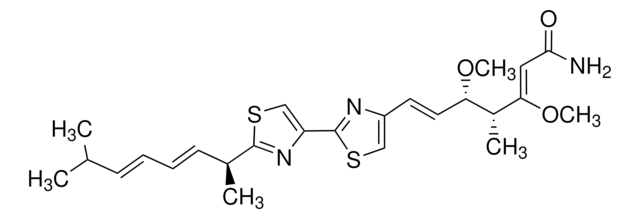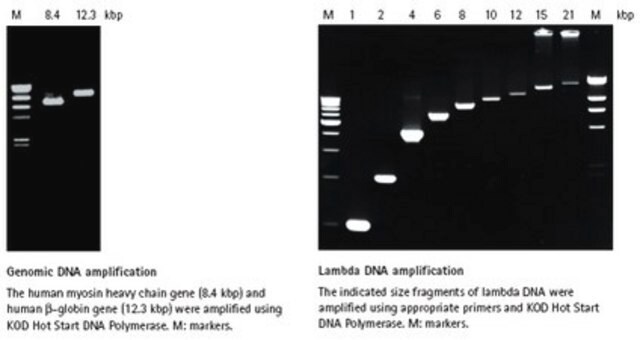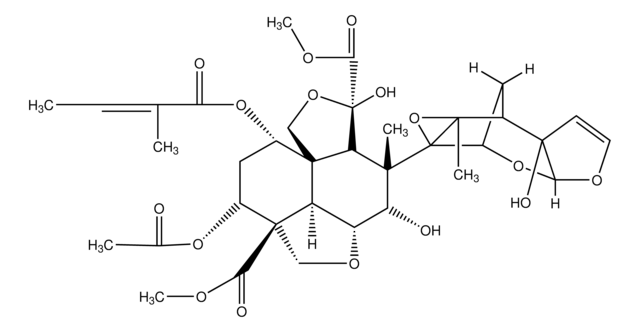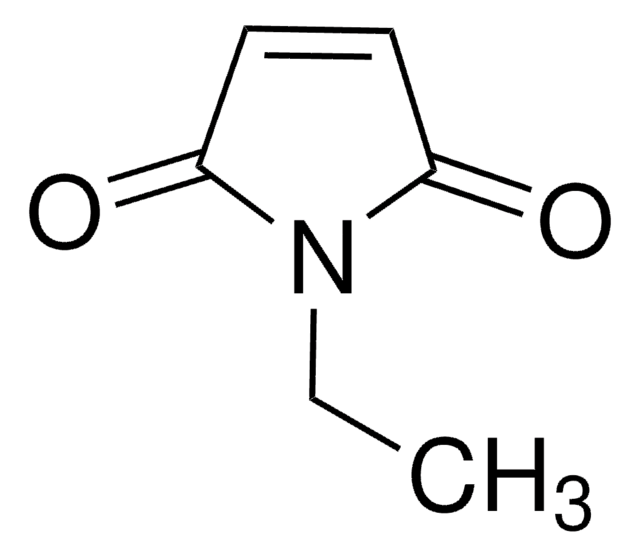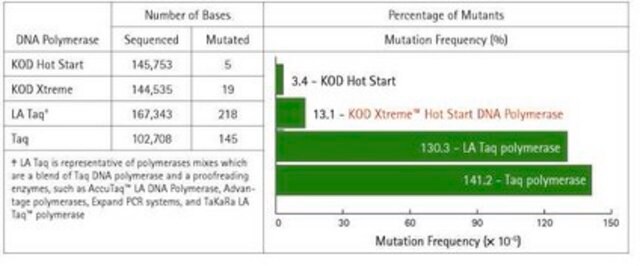E3656
(−)-Epothilone A
from Sorangium cellulosum, >95% (HPLC), solid
Synonym(s):
EpoA
About This Item
Recommended Products
biological source
Sorangium cellulosum
assay
>95% (HPLC)
form
solid
storage condition
desiccated
protect from light
storage temp.
−20°C
SMILES string
O=C(O[C@@](/C(C)=C/C1=CSC(C)=N1)([H])C[C@@](O2)([H])[C@@]2([H])CCC[C@H](C)[C@H](O)[C@H]3C)C[C@H](O)C(C)(C)C3=O
InChI
1S/C26H39NO6S/c1-14-8-7-9-19-21(32-19)11-20(15(2)10-18-13-34-17(4)27-18)33-23(29)12-22(28)26(5,6)25(31)16(3)24(14)30/h10,13-14,16,19-22,24,28,30H,7-9,11-12H2,1-6H3/b15-10+/t14-,16+,19+,20-,21-,22-,24-/m0/s1
InChI key
HESCAJZNRMSMJG-KKQRBIROSA-N
Biochem/physiol Actions
Related product
Storage Class
11 - Combustible Solids
wgk_germany
WGK 3
flash_point_f
Not applicable
flash_point_c
Not applicable
Choose from one of the most recent versions:
Certificates of Analysis (COA)
Don't see the Right Version?
If you require a particular version, you can look up a specific certificate by the Lot or Batch number.
Already Own This Product?
Find documentation for the products that you have recently purchased in the Document Library.
Our team of scientists has experience in all areas of research including Life Science, Material Science, Chemical Synthesis, Chromatography, Analytical and many others.
Contact Technical Service